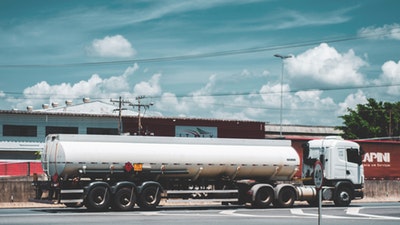Owner-operators logged about 100,000 miles each year. So what do they do to protect themselves during those many miles on the road? They purchase truckers insurance to help keep themselves and their truck protected while on the road.
Whether you have one truck or twenty trucks on the road, having the right coverage means that you’ll be able to keep operating if an accident happens.
Don’t let yourself get distracted with truck upgrades. Follow this guide to ensure you get the right coverage.
Auto Liability
This works the same as auto liability for personal auto insurance. Your commercial trucking insurance will kick in if you cause injury or damage to someone else.
When you become legally obligated to pay, the insurance will kick in. This protects both you and your business from financial ruin.
Non-Trucking
There are times when you or your drivers will drive your trucks while not hauling anything. Non-trucking insurance will cover you during these times while on the road.
You may also hear it referred to as deadhead insurance, unladen insurance, or bobtail insurance.
Physical Damage
Two common types of physical damage can happen, collision and comprehensive. Collision coverage gets your truck back on the road as soon as possible when it is involved in an accident.
Comprehensive protects you from damage that happens when your truck isn’t involved in an accident. This could be from theft, fire, or vandals. It can also be from objects, like a falling tree limb.
Cargo
Since the whole point of having your truck is to haul cargo, you need to have insurance that covers the items within your truck. Cargo insurance covers your load from damage while you are on the road.
This includes both damages from accidents and fire or theft. Otherwise, you are left legally liable for paying for the loss of cargo that is under your control while in transit.
When buying cargo insurance, there are a few different types. Talk with your broker about whether cargo insurance, reefer, earned freight or trailer interchange is appropriate for your business.
Earned Freight
This type of coverage is a reimbursement of the income you would have earned if your cargo hadn’t gotten destroyed. This will help you reimburse your customer if the cargo is a total loss.
Reefer
If your reefer unit fails, you risk spoiling your entire load of cargo. So reefer insurance is specifically there to protect you in the event this happens.
This coverage is not standard as a part of cargo insurance. So if you have reefer trucks be sure to have this added to your insurance policy.
Trailer Interchange
Let’s assume you get hired by a client who wants you to haul their trailer. Whose insurance is that trailer covered under?
The smartest thing you can do is gets trailer interchange insurance. This will protect you if that trailer gets damaged while you are pulling it.
General Liability
You may be familiar with general liability insurance from business insurance coverage. Retail businesses have this type of insurance to cover them if someone gets hurt while visiting their store.
Now, trucking companies don’t have customers coming to their property. So for you, general liability insurance covers claims that occur while you aren’t driving.
It will cover you if you are financially obligated to pay for someone who is injured or their property damaged. This could include medical bills, lost wages, or pain and suffering.
Pollution/Hazmat
If you plan to ship cargo that falls under hazmat regulations, then you need extra insurance. Hazardous materials are defined by the federal government as those that pose an unreasonable threat to the public and the environment.
Hazmat
Keep in mind that because hazmat shipping is heavily regulated by the federal government, you may be required to buy a certain amount of coverage. Be sure to discuss with your broker about these requirements if your business ships anything that could be considered hazmat.
Pollution
Any damage done to the environment can get expensive quick, so this type of coverage will save you. Pollution coverage will pay for the cleanup of the environment after an accident.
Consider this, you’re driving along with your load, and your attention started to drift. An accident happens, and your truck ends up on the side of the road in a stream or river. Now there is gasoline, oil, and hydraulic fluid leaking into the water.
It is your obligation to have this whole mess cleaned up. Your pollution coverage will pay for this cleanup.
Tailoring Coverage to Your Needs
Just like with personal auto insurance, the insurance company will want to know about the details of your trucks and business when deciding to approve coverage.
Prepare to answer questions about your drivers, number of trucks, type of business, and cargo. You should also prepare a list of your trucks with the make, model, and year. Finally, know your history; this includes accidents, claims, and any moving violations.
You can learn more here about the information you should gather when preparing to get your insurance quotes.
Get a Quote for Truckers Insurance
It can be exciting starting your own trucking business. Whether you are a single truck owner-operator or have a fleet of 20 or more trucks, you need to protect yourself.
Truckers insurance is the commercial form of auto insurance that covers trucks while they are on the road. Without it and one accident can put you and your business in financial ruin.
Along with proper insurance, you should have the repair manual for your vehicle.

